Tiberius Caesar Augustus' Character and Focus on Outer Roman Territories
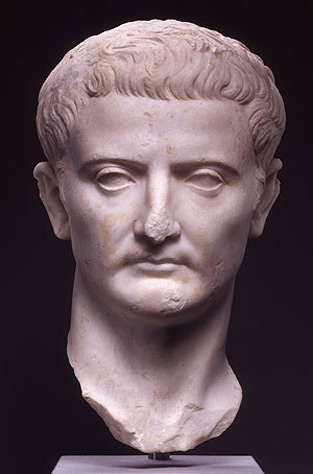
Like most Roman emperors, Tiberius (42 BC -37 AD) followed the examples set by his predecessor, the posthumously deified Augustus. Tiberius’ accession to leadership and succession of Augustus was not one of intention. An alternate to Augustus grandsons Gaius and Lucius, Tiberius was a successful military commander strategically stationed in Germany and eventually the Balkans, far away from the brothers whom Augustus favoured for leadership. Temperate and modest in his early years as emperor, Tiberius’ approach to the Senate and Rome was one of laissez-faire. While he did not build many temples or erect buildings in his name like Augustus or even Caesar, Tiberius’ leadership was strong and those who challenged it through conspiracy were dealt with swiftly.
TIBERIUS AND MOTHER
Born into the Julio-Claudian bloodline, Tiberius’ father was “descended from the original Tiberius Nero, and his mother from Appius Pulcher” (Suetonius 1979, p. 115). With such an impressive pedigree, it came naturally that Tiberius’ family would be involved in matters of the state. Caesar was impressed with Tiberius’ father, a commander whose military tact won him many victories. Following his birth, Tiberius moved with his family wherever Caesar sent the future emperor’s father, from military campaigns in Germany to colony developments in Gaul, “including those of Narbo and Arelate” (Suetonius 1979, p. 116).
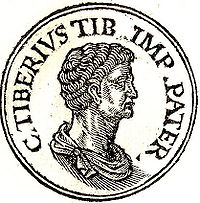 TIBERIUS' FATHER
TIBERIUS' FATHER
As a child, Tiberius’ life was “beset with hardship and difficulties”, his constant moving repeated later in life (Suetonius 1979, p. 116). Tiberius’ family was one whose sacrifices instilled in the future emperor the ability to distance himself from his enemies so as to preserve order. Cognizant of Augustus’ suspicions of a coup, Tiberius’ father divorced his wife and left Rome to allow Augustus to marry Tiberius’ mother and adopt his son.
Tiberius’ “civil career began with his defence, against various charges, of King Archelaus” and “the people of Tralles and the Thessalians,” strategic allies of the Roman Empire (Suetonius 1979, p. 118). It seemed as though Tiberius was destined to focus on international matters such as treaties and colonial expansion, as he would spend little time Rome, even as emperor. Tiberius followed in his father’s footsteps, later charged with “the task of pacifying Germany” (Suetonius 1979, p. 123). “At the height of his career, in the prime of life” and “in excellent health,” Tiberius “suddenly decided to go into retirement.” withdrawing “as completely as possible from state affairs” (Suetonius 1979, p. 119). This may have been on behalf of Augustus’ grandchildren Gaius and Lucius, the favoured heirs and projected emperors of Rome who also happened to be Tiberius’ adopted sons. Tiberius may have “resigned his established position as second man in the Empire”, leaving the “political field open” for the young brothers who “had recently come of age” for succession (Suetonius 1979, p. 119). This pattern of eschewing conflict and confrontation was repeated as emperor and throughout his life as a “civil servant.” His personal life was no exception; his estranged, adulterous wife Julia “had disdained him as an unequal match”, perhaps one of the many reasons for “Tiberius’ retirement to Rhodes” (Tacitus 1952, p. 15). 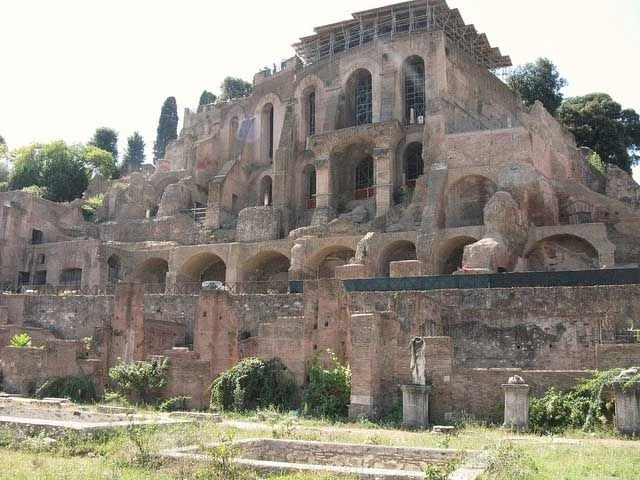
TIBERIUS' PALACE AT RHODES
The larger issue at hand, however, was imperial succession and the tumultuous transitional periods between emperors. In the case of his adopted sons, Tiberius knew that any inkling Augustus might have had regarding his Intentions would result in the end of Tiberius’ bloodline. In the case of Gaius and Lucius’ ascension to a shared leadership of Rome, Augustus could have perceived Tiberius as a manipulative figure, as having one’s stepchildren as emperors would provide obvious ancillary benefits. Following the untimely deaths of the two brothers, Tiberius was the only qualified and appropriate successor, and Augustus reluctantly approved and endorsed ascension.
The 1st century writer Tacitus described Tiberius the emperor as “very different” (Tacitus 1952, p. 16). Suetonius recalled Tiberius to be a humble ruler, one who developed a “hatred of flatterers”, once “[falling] over backwards” while retreating from a man’s ritual “supplication in traditional prostration” (Suetonius 1979, p. 128). More than simple modesty, Tiberius’ extravagant measures included the prohibition of his deification or the deification of his deceased family members. The unconventional emperor also allowed dissenting voices to be heard, so long as they fell within the realm of his brand of propriety. Tiberius believed free speech was the test of any state’s fortitude. The development of the Senate and the humanization of emperors was part of Tiberius’ claim that he “was following the policies laid down by Augustus (Scarre 1997, p. 34). Tiberius’ proclivity to avoid conflicts of interest also followed closely the framework of leadership established by his predecessor, as his early rivals such as his stepson Germanicus were sent with the “Rhine Army from AD 14-16, leading the legions deep in to Germany in successive campaigns (Scarre 1997, p. 31). Just as Augustus was wary of Julius Caesar's assassination and the events leading up to the murder. so was Tiberius wary of the consequences of murdering his erstwhile political opponents. By distancing Germanicus from Rome, Tiberius was limiting the presence of those who would disrupt the balance of power between himself and the Senate to a degree of uncertainty. Following death, his widow Agrippina, along with her eldest son. was “exiled to the Pontian Islands” (Scarre 1997, p. 32).
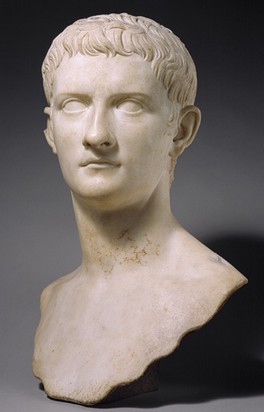 GERMANICUS
GERMANICUS
Tiberius was hence constantly preoccupied with the outlying Roman territories. Though he had no problem dealing with unruly senators, Tiberius knew that murdering other members of the Julio-Claudian bloodline would be disastrous for the Roman political fabric. By sending his opponents on campaigns in Germany and Gaul, Tiberius could remove their political influence, as expanding Rome was loyalty to the empire and not the emperor. If his opponents refused, they would not be disloyal to the emperor, but to the empire they claimed to serve. Moreover, the outlying territories and the cause of Roman expansion enabled Tiberius to distance himself from Rome while simultaneously gaining support from the people. Unfortunately, Tiberius earned himself the spite of his people, and his end brought “an ambivalent end to an ambivalent reign” (Scarre 1997, p. 35). His clever manipulation may have saved Rome from a second civil war, but it was hardly magnanimous in scope. Despite his claims of Augustan precedence, Tiberius died an unpopular leader, neither deified nor favorably recalled.
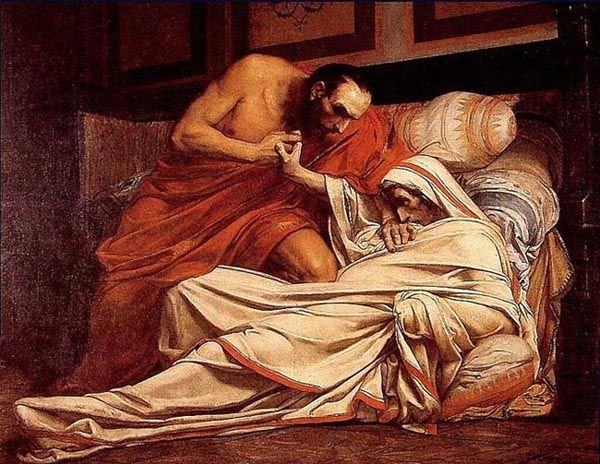
"The Death of Tiberius" by Jean-Paul Laurens, depicting Tiberius about to be smothered under orders of Naevius Sutorius Macro
BIBLIOGRAPHY
Scarre, Chris. (1997) Chronicle of the Roman Emperors: The Reign-by-Reign Record of the Rulers of Imperial Rome. London, Thames and Hudson.
Suetonius. Gaius and Robert Graves (trans) (1979) The Twelve Caesars. New York, Penguin Classics.
Tacitus, P. Cornelius. (1952) The Annals and The Histories. Chicago, Encyclopedia Britannica.